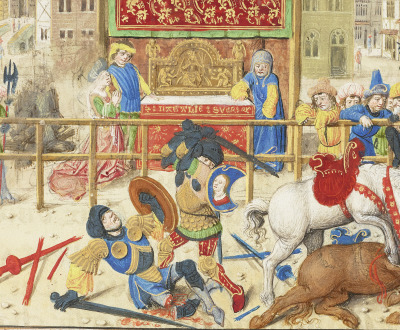Miscellany
Greek dramatist Aristophanes, in the 423 bc comedy The Clouds, coined the term rhaphanidosis, “the humiliating act of thrusting a radish up the anus as a punishment for adultery.”
Miscellany
Saint Augustine based his definition of original sin on a misinterpretation of the Greek in Romans 5:12. According to Augustine’s misreading, sin is contracted and passed through the human race like a venereal disease. “We all were in that one man,” he wrote of Adam, who Augustine believed contained the nature of all future men, which was transmitted through Adam’s semen. The human race is therefore a “train of evil,” headed for destruction. The monk Pelagius argued against this concept, known as seminal headship. The Council of Orange accepted Augustine’s doctrine of original sin in 529.
Miscellany
The Spinhuis was founded in Amsterdam in 1597 for the purpose of detaining women arrested for adultery, fornication, prostitution, or drunkenness. In addition to being “chastised and betrayed,” inmates were put to work spinning flax and wool.
Miscellany
In 1988 Major Ronald Ferguson—a onetime officer in Her Majesty’s Household Cavalry, Prince Charles’ polo manager, and father of Sarah, duchess of York—was discovered by a London tabloid to be a habitué of the Wigmore Club, a West End massage parlor. When it was alleged that Ferguson paid for sexual services from a number of women and gave them perfume and bath oil said to be used by the royal family, he admitted, “I’ve been a fool.” “He’ll have to deal with this himself,” said a spokesperson for Buckingham Palace. “It’s nothing to do with us, despite the fact that he’s the Duchess of York’s father.”
Miscellany
In 1851 an Episcopal rector wondered why Nathaniel Hawthorne had selected the theme of adultery for his 1850 novel. “Is it, in short, because a running undertide of filth has become as requisite to a romance as death in the fifth act to a tragedy?” wrote the cleric. “We honestly believe that The Scarlet Letter has already done not a little to degrade our literature and to encourage social licentiousness.”
Pages

